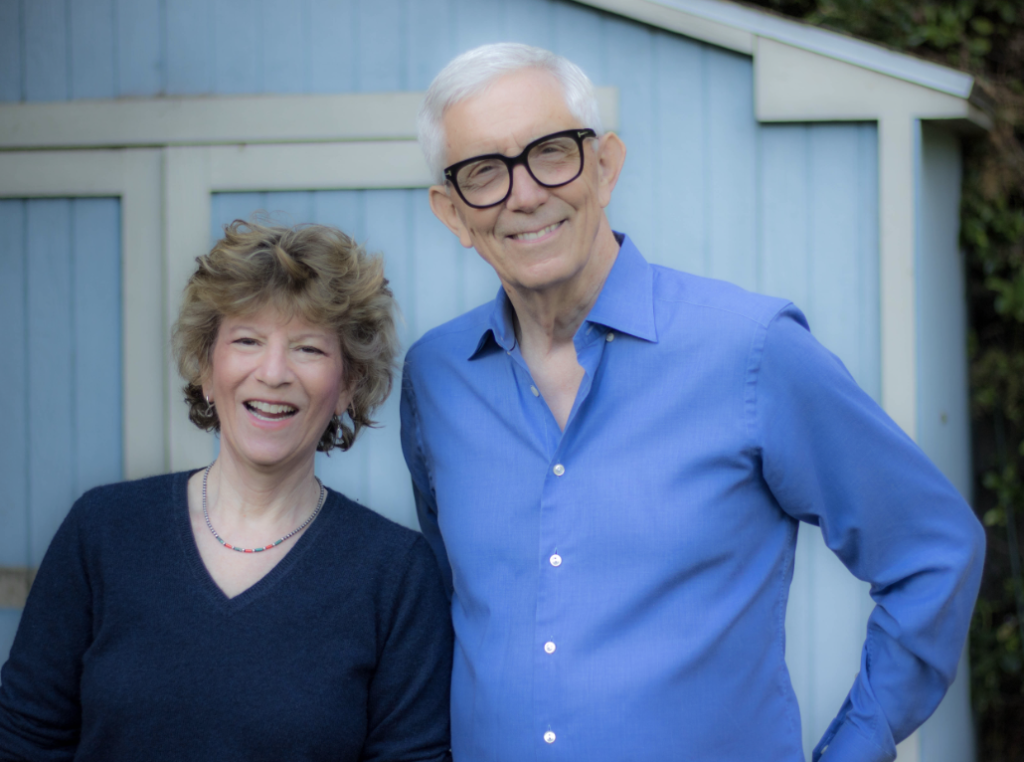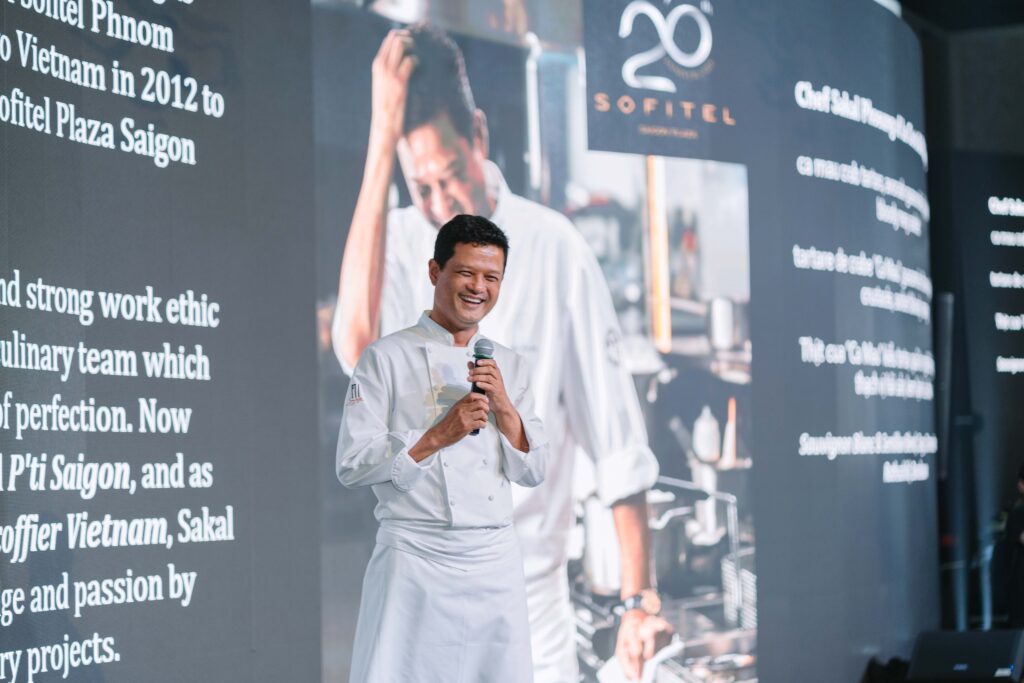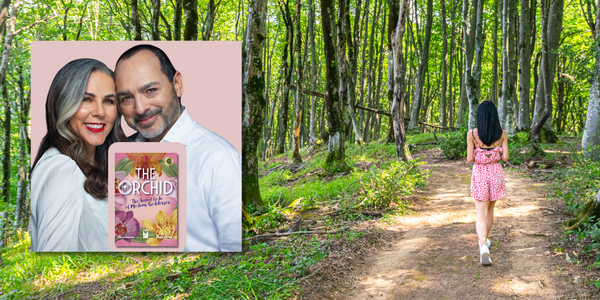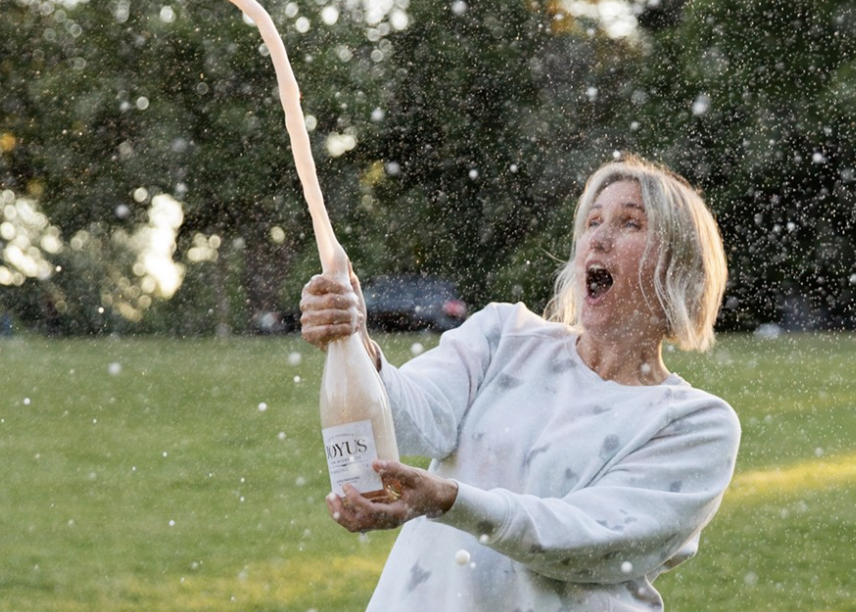Kendrick Lamar – The Big Steppers Tour Aug 4 at DC’s Capital One Arena
Hours after releasing the week’s most buzzed-about album, Kendrick Lamar has announced an international tour that includes a Washington, DC stop.
DC’s Capital One Arena on Aug. 4
The Los Angeles rapper will play DC’s Capital One Arena on Aug. 4, part of his five-month Big Steppers Tour. Baby Keem, Lamar’s cousin and frequent collaborator, will open the show.
Kendrick Lamar’s The Big Steppers Tour
The Big Steppers Tour is Lamar’s first big outing since 2018, which included a visit to DTE Energy Music Theatre.
Friday’s tour announcement comes on the heels of “Mr. Morale & the Big Steppers,” released overnight. The 18-track double set is Lamar’s fifth studio album and first in five years.
Related:
Bad Bunny’s World’s Hottest Tour stops at DC’s Nationals Park on Aug 23
Kendrick Lamar, The Big Steppers Tour, show dates
North American Leg
July 19 – Oklahoma City, Okla. – Paycom Center
July 21 – Austin – Moody Center
July 22 – Houston – Toyota Center
July 23 – Dallas – American Airlines Center
July 24 – Miami – Rolling Loud
July 27 – Tampa, Fla. – Amalie Arena
July 29 – New Orleans – Smoothie King Center
July 30 – Atlanta – State Farm Arena
July 31 – Nashville – Bridgestone Arena
Aug. 2 – Charlotte – Spectrum Center
Aug. 4 – Washington, D.C. – Capital One Arena
Aug. 5 – Brooklyn, N.Y. – Barclays Center
Aug. 6 – Brooklyn, N.Y. – Barclays Center
Aug. 7 – Long Island, N.Y. – UBS Arena
Aug. 9 – Philadelphia – Wells Fargo Center
Aug. 10 – Boston – TD Garden
Aug. 12 – Toronto – Scotiabank Arena
Aug. 13 – Toronto, Scotiabank Arena
Aug. 14 – Detroit – Little Caesars Arena
Aug. 16 – Columbus, Ohio – Schottenstein Center
Aug. 18 – Milwaukee – Fiserv Forum
Aug. 19 – Chicago – United Center
Aug. 20 – Minneapolis – Xcel Energy Center
Aug. 21 – Kansas City – T-Mobile Center
Aug. 23 – Denver – Ball Arena
Aug. 24 – Salt Lake City – Vivint Smart Home Arena
Aug. 26 – Portland, Ore. – Moda Center
Aug. 27 – Seattle – Climate Pledge Arena
Aug. 28 – Vancouver, B.C. – Rogers Arena
Aug. 30 – Sacramento – Golden 1 Center
Aug. 31 – Oakland, Calif. – Oakland Arena
Sept. 1 – Oakland, Calif. – Oakland Arena
Sept. 6 – San Diego – Viejas Arena at San Diego State University
Sept. 7 – Anaheim, Calif. – Honda Center
Sept. 9 – Las Vegas – T-Mobile Arena
Sept. 10 – Phoenix – Footprint Center
Sept. 14 – Los Angeles – Crypto.com Arena
Sept. 15 – Los Angeles – Crypto.com Arena
Overseas leg
Oct. 7 – Amsterdam – Ziggo Dome
Oct. 10 – Prague – O2 Arena
Oct. 11 – Berlin – Mercedes-Benz Arena
Oct. 13 – Hamburg – Barclays Arena
Oct. 15 – Copenhagen – Royal Arena
Oct. 17 – Stockholm – Avicii Arena
Oct. 19 – Oslo – Telenor Arena
Oct. 21 – Paris – Accor Arena
Oct. 24 – Stuttgart – Scheleyerhalle
Oct. 25 – Zurich – Hallenstadion
Oct. 26 – Laussane – Vaudoise Aréna
Oct. 28 – Antwerp – Sportpaleis
Oct. 30 – Cologne – Lanxess Arena
Oct. 31 – Frankfurt – Festhalle
Nov. 2 – Glasgow – OVO Hydro
Nov. 3 – Leeds – First Direct Arena
Nov. 4 – Newcastle – Utilita Arena
Nov. 5 – Birmingham – Utilita Arena
Nov. 7 – London – The O2
Nov. 8 – London – The O2
Nov. 13 – Dublin – 3Arena
Nov. 16 – Manchester – AO Arena
Dec. 1 – Perth – RAC Arena
Dec. 4 – Melbourne – Rod Laver Arena
Dec. 8 – Sydney – Qudos Bank Arena
Dec. 12 – Brisbane – Entertainment Center
Dec. 16 – Auckland – Spark Arena
YOU MIGHT ALSO LIKE
Bubbly East Coast Prosecco Tasting! Discover with Wine Expert Alan Tardi Wed June 26th at New York Wine Studio
DC Heads to NYC for Prosecco! Taste and Discover with Wine Expert Alan Tardi Wed June 26th at New York Wine Studio
Prosecco has gone from a little known mountain fizz to a vinous superhero, overtaking Champagne (and every other sparkling wine out there) and enjoyed by wine drinkers throughout the world, as the base of a cocktail or an everyday quaff.

But despite its huge popularity, most people don’t know much about it.
And there is much more to Prosecco than many people are aware.
”My objective is to
clarify the critical differences
between the original ancient Conegliano Valdobbiadene Prosecco and
the DOC Prosecco that was enacted in 2010.”
Alan Tardi
New York Wine Studio
Prosecco is produced only in Italy, in the Northern regions of Veneto and Friuli, and there are three official Prosecco appellations.

Prosecco DOC
One of them, Prosecco DOC, was created in 2010. It occupies a huge, mostly flat area encompassing almost two entire regions and accounts for most of the 700+ million bottles of Prosecco produced each year.
Conegliano Valdobbiadene Prosecco DOCG
Conegliano Valdobbiadene Prosecco DOCG is a tiny area in the foothills of the Dolomites consisting of 15 small municipalities in the province of Treviso. This is the ancient winegrowing area where Prosecco was born and made a miraculous comeback in the aftermath of World War II.

New York Wine Studio’s Alan Tardi
Besides its pedigree, there are numerous factors of the Conegliano Valdobbiadene enclave that distinguish it from any other winegrowing area in the world: complex and diverse topography, variety of soils, native grape varieties, distinct sub-areas, ancient history, and varied typology—bubbly, fizzy, and still; secondary fermentation in tank or in bottle, leaving sediment in the bottle (known as Ancestral Method) or removing it (Traditional Method).

In this class—which takes place right in the middle of National Prosecco DOC week—we will discuss the origin and evolution of Prosecco in the Conegliano Valdobbiadene area. We will also examine the two additional Prosecco appellations created in 2010.
But most of the time will be devoted to exploring and tasting Conegliano Valdobbiadene Prosecco through a lineup of 8 exceptional terroir-driven wines, in a variety of styles, that demonstrate the unique characteristics, complexity, and diversity of the original Prosecco.
Participants will also learn how to say “CONEGLIANO VALDOBBIADENE” like an Italian!

Alan Tardi has arranged a fantastic lineup of unusual and exceptional wines (half of them are coming directly from Italy) which demonstrate the various factors that characterize the complexity and uniqueness of Conegliano Valdobbiadene: Different production methods (“Tranquillo” i.e. still, Martinotti, Classico/Traditional, Ancestral); frizzante, spumante; single vineyards, Rive, native grape varieties; diverse, soils, terroirs and topographies.
List of Wines
- Prosecco Tranquillo DOCG “Il Canto Antico” — BORTOLOMIOL*
- Colli Trevigiani IGT Verdiso Frizzante Sui Lieviti — GREGOLETTO
- Progetto 5 Varietà Conegliano Valdobbiadene DOCG Brut — MARCHIORI*
- Conegliano Prosecco Superiore DOCG Rive di Ogliano Extra-Brut — BIANCAVIGNA
- Superiore di Cartizze Brut DOCG — RUGGERI*
- Superiore di Cartizze DOCG “Private” Rifermentato in Bottiglia 2014 — BISOL
- Conegliano Valdobbiadene Prosecco Superiore DOCG Rive di Carpesica “S.C. 1931” Metodo Classico — BELLENDA*
- Valdobbiadene Prosecco Superiore DOCG Asciutto, Rive di Colbertarldo, Vigneto Giardino — ADAMI
- Torchiato di Fregona Colli di Conegliano DOCG “Ciàcoe” 2016 — CA’ DI RAJO*
*Shipped directly from the winery in Italy
Find more information and buy tickets at New York Wine Studio or at the link below.
https://www.newyorkwinestudio.com/original-prosecco
Bob Dylan’s Bourbon Feud: Heaven’s Door Kentucky vs Tennessee
Bob Dylan’s Bourbon Feud: Heaven’s Door Kentucky vs Tennessee
Heaven’s Door Spirits, Bob Dylan’s highly awarded collection of super-premium American whiskeys, is turning up the heat on the age-old debate of which state, Tennessee or Kentucky, makes the best bourbon.
For as long as corn’s been cracked and stills have bubbled, Kentucky and Tennessee have been turning pristine limestone water and grains into a coveted amber elixir.
Heaven’s Door’s Great State Bourbon Debate rekindles the friendly feud
Heaven’s Door’s Great State Bourbon Debate rekindles the friendly feud between these two bourbon powerhouses, inviting whiskey lovers everywhere to put their palates to the test and voice their opinion.
Heaven’s Door sets itself apart as the first brand to offer both a Kentucky and Tennessee bourbon, giving fans a unique chance to compare.
The brand’s Kentucky Straight Bourbon, Ascension, and Tennessee Straight Bourbon, Revival, are made from high rye mash bills with grains largely sourced local to the distillery, and barreled at the same proof, yet yield vastly different taste profiles. Heaven’s Door invites you to level set, savor and decide which bourbon pleases your palate and wins your heart.
A Tale of Two Bourbons
Many folks mistakenly believe that bourbon can only be made in Kentucky, but the truth is, bourbon can be crafted anywhere in the U.S.
What makes an American whiskey a true bourbon is a special set of rules: it has to be made with at least 51% corn, distilled at a certain proof, and aged in new oak barrels.
Kentucky and Tennessee both have storied histories of producing excellent bourbon, with differences in water and climate producing distinct flavors.
Kentucky’s limestone water and Tennessee’s pure spring water are both famous for helping yeast thrive during fermentation.v
Differences in flavor profile come from the type and provenance of the grains used, the type of yeast used, water quality, the proof at distillation and the particular wood used to make oak barrel.
Even the location of the barrel warehouse, the circulation of air between the barrels being stored and where the barrels are within the warehouse (high up or near the bottom) all conspire to give impart flavor differences.
Heaven’s Door Kentucky Straight Bourbon, Ascension
Heaven’s Door Kentucky Straight Bourbon, Ascension, is a unique blend of two premium Kentucky straight bourbons aged for over five years and non-chill filtered, boasts warm and slightly sweeter notes of vanilla and baking spices. The limestone-filtered water of Kentucky, renowned for its purity, plays a key role in developing these rich flavors.
Heaven’s Door Tennessee Straight Bourbon, Revival
Heaven’s Door Tennessee Straight Bourbon, Revival, also aged for over five years and non-chill filtered, offers a drier profile with complex and sharp flavors. Unlike many Tennessee bourbons, Revival skips the “Lincoln County Process” – a charcoal filtering step – allowing the natural flavors of the local non-GMO grains to shine through, resulting in a lingering finish with hints of caramel, cinnamon, and nutmeg.
“We wanted to fan the flames of this old debate
between Kentucky and Tennessee bourbon
and showcase
our outstanding expressions of both styles.
We’re excited to hear what consumers think and how they experience these two classic bourbons.”
Alex Moore
Master Blender and COO
Heaven’s Door Spirit
Heaven’s Door marries art and craft in every bottle, drawing inspiration from Bob Dylan’s restless spirit to continually innovate. By sourcing non-GMO grains and honoring each state’s natural elements, the distinct character of each bourbon is evident in every sip.
Yo DC! Following your Heart and Need Media Attention? Reach to Publicity For Good, CEO Heather Holmes explains
Yo DC! Following your Heart and Need Media Attention? Reach to Publicity For Good, CEO Heather Holmes explains
Publicity for Good is a millennial run communications firm that provides high-level disruptive, publicity and social media services for wide array of purpose driven clients in the food, beverage and beauty industry.
In 2016 by Heather Holmes former miss Ohio international celebrated publicist and Forbes 30 under 30 nominee publicity for good has built a reputation as the countries number one PR agency for CPG brands that have social causes built into their DNA.

Publicity For Food CEO Heather Holmes
Today’s conversation with Heather Homes from PublicityForGood.com has been edited for length and clarity. For the full, un-edited conversation, visit our YouTube channel here.
Joe Winger:
Heather Holmes from PublicityForGood.com. I’m a big fan because you’ve helped us facilitate a lot of previous conversations about food and drink and nutrition and all the things we like talking about.
What’s the most important thing that you want to share with the audience today?
Heather Holmes:
I really want to take away the unknown or worry about getting in the media. I want to make it more accessible to amazing brands and people.
So I definitely want to share tactical advice that if someone is reading this, they have a good story in business, they have the confidence that their story is good enough and they could absolutely make an impact and grow their business by getting in the media.
Joe Winger:
Starting with the basics, let’s pretend I have a company, I think I want public attention. I want to reach out to someone like you.
So what should I be thinking about? What do I present to you as a step one?
Heather Holmes:
Step one is really the intentionality of why you want to get in the media. What’s your goal? Are you wanting to reach more people? Are you wanting to get your story out there?
Are you wanting more sales and more people to buy your product?
You really need to know. Where you’re going first, and if you don’t know where you’re going, or you don’t have a vision, then it’s really hard to help you.
But if you have clarity there, then we can really pull back and help you identify your story, how you’re different, your why, and why your product and or company, would be really great to be in the media.

The PublicityForGood Team
Joe Winger:
Now, looking at the grand scheme of the campaign, what kind of a campaign should we be looking for: expectations, results?
Heather Holmes:
After we know our outcome that we’re wanting to get more sales, more backlinks, or name in the media, then what I like to do first is work with every entrepreneur, and even if you have a product, to really reflect in “why your story matters”
Why does your product matter?
If you’ve never been in the media before, I take people for an exercise where I have them draw on a piece of paper, them as a baby, to where they are now.
I have them write the key pivotal moments that have happened in their life that have made them start that company, because those little components are absolutely a part of your story.
I’ve been in the media 700 plus times: Inside Edition, Fox News, The New York Coast, incredible media, but it hasn’t always been about being a publicist, right?
Yes. I’m the founder of Publicity For Good, but a lot of that has been my story or building a seven figure company from an airstream.
Now I have almost two under two with a third on the way.
So you need to have your key pivotal moments because those are things you can talk about in the media.
Then we need to look at what’s going on in the news and how we bridge the gap between your product. Relevancy.

Joe Winger:
People may not know you are a former Miss Ohio International. Can you tell us a lesson you learned from being a former Miss Ohio International that you’re using in today’s work?
Heather Holmes:
It’s really all about your platform and reaching new audiences.
When I was building my company I decided I wanted to get into pageants. I wanted to meet a community of like minded people that wanted to make a difference in the world.
It was a way for me to have a platform because at the time I was talking about why you absolutely can build a profitable business. But also make a difference in your community and make a difference amongst your team. And really just build an incredible legacy.
So that was why I did the pageants.
I did a bunch of publicity and again, it made me relevant and timely because that was what got me in the media because I was Miss Ohio and I was only Miss Ohio International for a period of time.
So it gave me that relevancy. So you have to be relevant.
You have to bridge the gap between what’s happening in the news, or we often use Awareness Days, National Nutrition Month, National Social Media Day, and you have to position your product or yourself as the solution.
[For example], we were talking about an incredible juice brand, but most pitches I see are very promotional, right? It needs to be how you or your product simplifies people’s lives. How are you adding value? Or you don’t have a product you need to inspire people.

Joe Winger:
You’re growing a 7- figure business. What’s it like growing a huge business while you’re taking care of your kids and for a while you were living out of your Airstream
Heather Holmes:
We lived out of a 23 foot airstream for 3 1/2 years. I went from dating to engaged, to married to [my first child] Rose, who’s almost two, who lived in our airstream with us.
The year the pandemic [hit] was our first million dollar year.
I think a lot of the reason why it was that year is because when March hit, everyone was so scared that we lost about 40% of our business, number one.
Number two, we had to hustle and grit to make it. There was no choice of failing. All the distractions were gone.
When you’re in an Airstream, all you have is your laptop, but we had no external distractions, and then everything else was closed.
So the only focus we could do was our business and we had to scale out of necessity because we didn’t want to lose what we had put so much time in.
Fast forward, we now have 22 acres where we live and we have two under two, we have one on the way, we’re a full time team of 40, and it’s not easy.
I say transparently, it’s a hot mess. There are so many miracles that happen every day, but life is one, right? I can’t turn off my founder hat and publicist hat and then “Oh, I’m a mom”. It’s all one.
So yes, I might have Rose [my daughter] on a call with me from time to time, but I’ve learned that the more you step in and embrace your life, who you are and the realness, sometimes people opt out and that’s okay.
And this is my legacy.
I like these missions that we’re doing good work to us is way more than a business. We want to grow your brand and mission and we take it so seriously.
So it’s not perfect. It’s not perfectly scheduled. I’m a full time mom, all the time on the weekends when the kids are sleeping, we’re working.
We know where we want to go, and these clients and ambitions that we’re aligned with and supporting are helping people with their health.
Joe Winger:
What an incredible story to share.
Heather Holmes: I have so much to share. Like I was adopted when I was a week old to having two under two and another one on the way and building a business and building a homestead.
It’s so crazy. Austin, who’s my husband, the first week we were dating, we’re all about intentionality. I have the journal and we mapped everything out.
This year, we were going to get engaged then married. Austin and I,l we will have been together almost five years.
We’ve had a kid every year. Rose will be two in June.
We want to build a business. We want to impact our clients, brands, and scale their business. We want our team to get better and flourish in their personal lives too.
This is our mission and I’ve seen so many miracles happen from getting in the media on a personal level.
I was talking to [a business owner client] and her business grew by 40% from getting in the media.
One of my favorite cookie brands, a mom had an incredible heart story. She went on our local news and she brought in $12,000 worth of sales, just the local people wanting to support her.
On the flip side, when people Google my name, it’s like my social currency, there’s all these articles. So I have so much peace in that. Our kids will see the good work we’re doing.
Joe Winger:
You’re talking to an audience of foodies. What is your favorite meal?
Heather Holmes:
We just had Indian food last night that my husband made and it was so good.
We used to live in San Diego and I think San Diego has the best food. It’s all fresh. We’ve traveled a lot. We’ve been to Bali, their food is pretty incredible too. Where we live [now] we’re right outside of Asheville and Charlotte. So they have some good restaurants, but like I’m not in the phase right now where I’m the foodie like I used to be.
[At our house] we have chickens and we have fresh eggs. So I’m obsessed with fresh eggs every morning. You’re living a good life when you can go get your eggs and have them at home with some goat cheese.
And honestly, I love Livermuth. Crazy. So I’d say some Livermuth fried in a cast iron with some eggs and goat cheese. It’s the simple things that I really do love.
Joe Winger:
Heather Holmes with Publicity for Good. As we wrap up, whether it’s a potential client, a potential vendor, someone wanting your help with publicity, what are the best ways to find, follow you, websites, social media, etc?
Heather Holmes:
You can go to PublicityForGood.com You can find me on social media as well.
https://www.linkedin.com/in/heatherdesantis
https://www.instagram.com/heatherdesantis
https://www.instagram.com/publicity.for.good
https://www.facebook.com/heatherdesantis
You Might also like
-
DC gets Flavor: Chilli No. 5 Unveils Hunted Alba White Truffles for Limited Time
DC gets Flavor: Chilli No. 5 Unveils Hunted Alba White Truffles for Limited Time
Chilli No. 5 launches a new batch of 50 bottles of magnificent White Truffle Hot Sauce to compete with Truff, the industry leader and USA truffle sauce master.
The only difference is Chilli No. 5 ses real white truffles from Alba in the Piemont and has won the Great Taste Award in 23.
Priced at £25/30€/$ per 100ml, it solidifies its position as one of the priciest and fanciest hot sauces in the global market.

Every October, Chilli No. 5 founder Rumble Romagnoli visits Alba in Northern Italy to hunt and handpick white and black truffles that are used to make a yearly batch of the Chilli No. 5 White Truffle Hot sauce.

Truffle Hunter – Renzo, and Lagotto Romagnolo truffle dog – Charlie
The team has a dedicated Truffle Hunter – Renzo, and Lagotto Romagnolo truffle dog – Charlie to find the best truffles in the world. They also benefit from access to the truffle forest that has belonged to Renzo’s family for generations.
“Truffles are like diamonds. They cannot be made.
You have to find them.
Rumble Romagnoli
founder
“…Each one is unique. Close your eyes and bring the forest to life with this uber-umami white truffle sauce unmatched so far in the industry.” – Rumble Romagnoli founder says.

Romagnoli adds “You can understand that no expense was spared in sourcing the finest white truffles, carefully handpicked to ensure their unparalleled quality and aroma. Blended with a mix of fresh mushrooms such as Porcini, Ceps, Chantrelles, Girolles, and Morilles, this creation is a true culinary gem.”

According to the Great Taste Award Judges “It becomes clear very quickly that this sauce has been made with real skill. The truffle is very much present but tamed at all times. The additional mushrooms combine for a really characterful sauce that offers umami in spades but has some acidity, tang and sweetness too. On top of all this artistry, there’s the late and subtle arrival of chilli heat to round it all off. This is a very complex sauce, but very accessible too.”

This unique White Truffle Hot Sauce will be a versatile addition to kitchens, grills, and BBQs all over the world used not only as a condiment, but also as marinade, and a BBQ sauce. Traditionally, truffle is used on plain pasta, risotto, or grilled meats to enhance the complexity of this unique flavour. The intoxicating aroma and robust, earthy flavour of white truffles create a truly sensory experience that will transport you to a world of culinary luxury.
Chilli No. 5’s White Truffle Sauce is a limited-edition offering, available for a limited time as only 50 bottles are produced each season. This new batch left the Chilli No. 5 kitchens today, so don’t miss the opportunity to add this rare delight to your upcoming culinary repertoire.
Chilli No. 5’s White Truffle Sauce is the perfect choice for discerning home cooks, food enthusiasts, and those seeking to impress guests with a touch of decadence. Whether you’re celebrating a special occasion, hosting an intimate dinner party, or simply indulging in a gourmet home-cooked meal, this sauce will leave a lasting impression.

This limited-edition White Truffle Hot sauce goes with everything and is perfect for a chilli sauce gift in its designer sustainable packaging.
To explore the rich flavors of Chilli No. 5’s White Truffle Sauce and elevate your culinary creations, visit Chilli No. 5’s Website.
Post Views: 348 -
Oregon Wine Country: Coppola‘s Domain de Broglie takes Top Honors at 30th annual McMinnville Wine Competition
Coppola‘s Domain de Broglie takes Top Honors at 30th annual McMinnville Wine Competition
The McMinnville Wine Classic Competition completed its 30th annual professional judging on Saturday January 7, 2023.
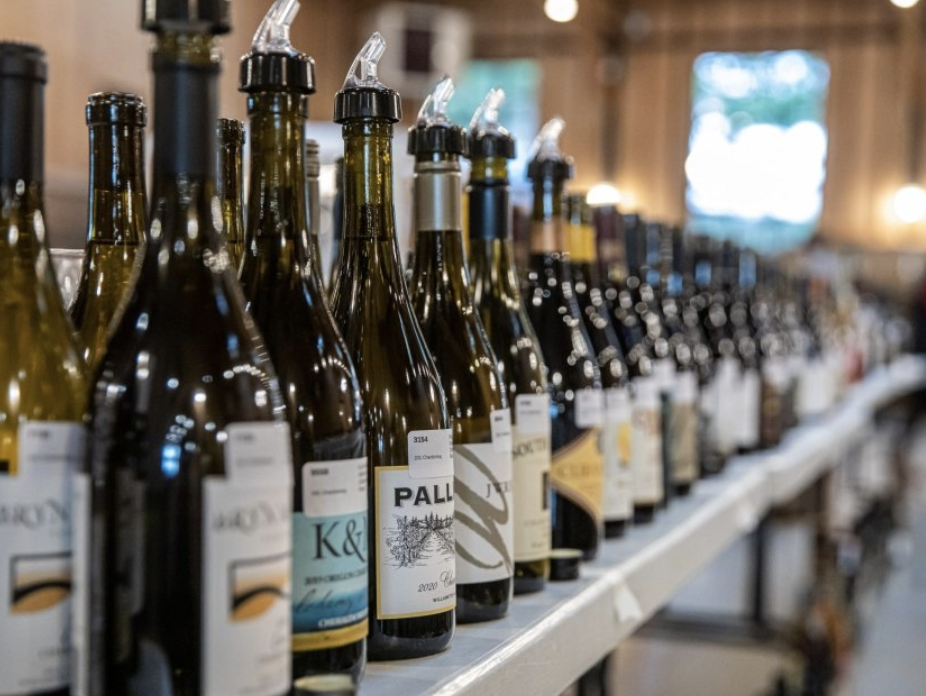
All eight out-of-state judges arrived unfettered and ready to help elevate the competition.
The wine competition has not missed an event including through the peak Covid years, and is a dedicated fundraiser for McMinnville’s St. James School.
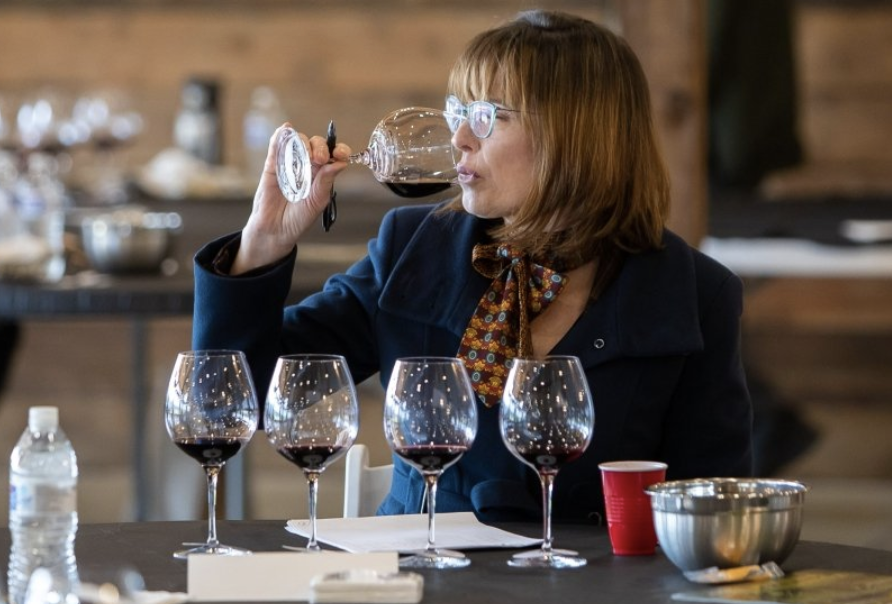
Oregon Wine Country: Coppola‘s Domain de Broglie takes Top Honors at 30th annual McMinnville Wine Competition
It raises thousands of dollars for programs benefiting the school’s children. Organized by Rolland Toevs, Carl Giavanti and Jon Johnson and staffed by volunteers, the Mac Classic competition is one of the largest Oregon Only wine competitions in the state.
The competition draws professional judges from across the U.S.
This year’s panel represents the full spectrum of the wine industry, including future MW Samantha Cole Johnson of Janice Robinson.com, Sommeliers like Fred Swan and Ellen Landis, Buyer Jusden Aumand from Tri-Vin Imports, and Wine Writers such as Clive Pursehouse the U.S. Editor for Decanter Magazine, Eric Degerman of Great Northwest Wine, Deborah Parker-Wong the U.S. Editor Slow Wine Guide, James Melendez aka James the Wine Guy, and Michael Apstein of Wine Review Online and Terroir Sense.
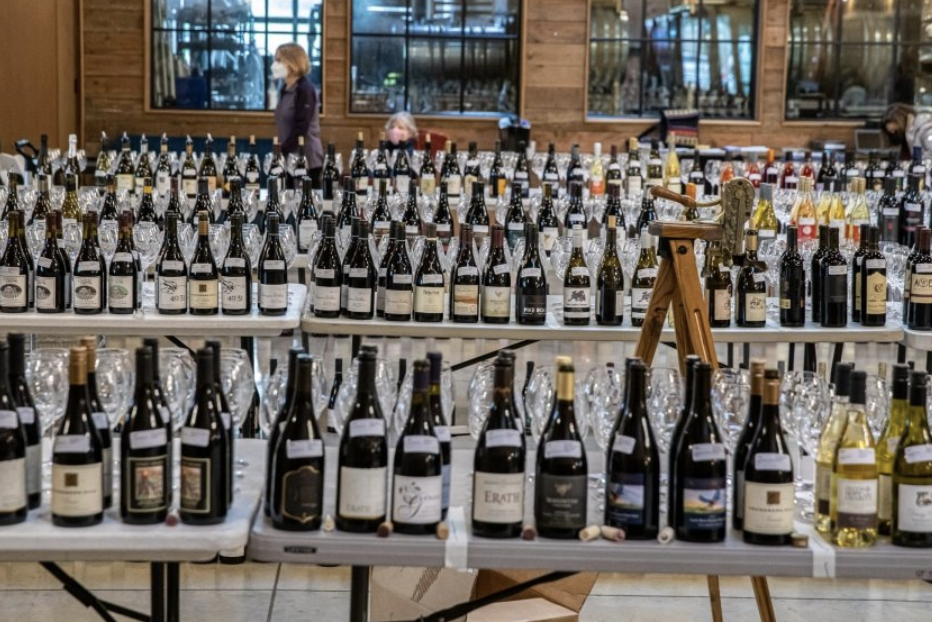
Wines were showing well, with distribution of Double Gold and Gold awards was across the state.
Taking home top honors in 2023 was Domaine de Broglie, whose 2019 Dundee Hills Pinot Noir claimed Best of Show, Best Pinot Noir and Best Red Varietal, a first time ever for any winery in the state.
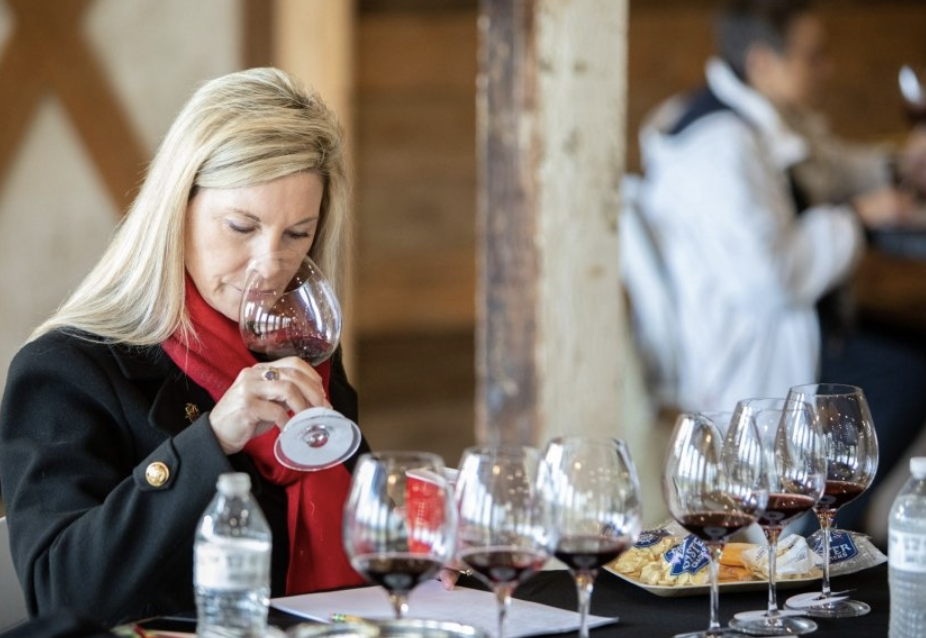
Cardwell Hill Cellars won Best Chardonnay again this year, a record fourth time, for their 2021 The Bard Chard, as well as Best White Varietal. Pike Road Winery won Best Dessert Wine for their Yamhill-Carlton AVA Route 47 Late Harvest white.

Rounding out the awards was Durant Vineyards who gained the top spot in the Best Sparkling Wine category for their 2019 Brut sparkling wine. All Double Gold and Gold Medals are listed at the bottom of this page:
For more details, visit https://www.mcminnvillewinecompetition.com/
Post Views: 238 -
For DC, it’s a Rose’ Summer! NBA Hall of Famer Tony Parker shares his Dinner Party Secrets and future of Rose’
NBA Hall of Famer Tony Parker shares his dinner party secrets, favorite french summer escapes and the future of the Rose’ Revolution.
In his incredible basketball career, Tony Parker earned four NBA Championships with the San Antonio Spurs, was selected for six All-Star teams and named MVP of the 2007 Finals.
But these days, his passion for food and wine is keeping him even more inspired.
Starting as a boy growing up in France, the memorable dinner parties he hosted during his NBA days, his summer escapes to French Vineyards during the off-season.
It’s no surprise that now he diving into the French wine world, buying Château La Mascaronne in Provence with legendary business partner Michel Reybier.
A magnificent adventure for the next vintage of his life’s journey.

Château La Mascaronne Rose’ COURTESY OF CHÂTEAU LA MASCARONNE
Today I sat down with Tony Parker (over audio-only speakerphone) for a conversation about dinner parties, french vacation, getting busy in vineyards, and the future of Rose’ wine.
The conversation has been edited for length and clarity. The full conversation can be found on our YouTube channel.
Also, the podcast version is here:
You’ve been diving into the world of winemaking with Michel Reybier and his team. Can you talk a little bit about the adventure, any surprises or lessons?
It’s been amazing. I always wanted to invest in a project like that. The first time I tried wine was when I was 17 years old. I wanted to keep learning about it and get my knowledge better around the wine world. And so when I was 19, I finally made enough money to afford all those great wines.
I was lucky enough to play for a coach who loved wine, had a huge collection, was reading wine magazines every trip. And so that’s how we bonded. As I got better, in my knowledge of wine, I started to invite all the best [people] in San Antonio to come to do a nice dinner at my house with Coach Popovich, and then the next day I would invite them to a Spurs game.

Château La Mascaronne COURTESY OF CHÂTEAU LA MASCARONNE
Then during the summer I started making trips to the vineyard. I started to know them better. Because in the wine world, obviously, you have great families. They’re super passionate. And that’s how I started; working on my allocation and the good bottles, the Reserves.

Tony Parker and Michel Reybier – SEBASTIEN CLAVEL
When I retired I wanted to be more involved. But it’s very hard to invest in the wine business because it’s either in the family for generations and generations. Those big companies buy everything. And so I was very lucky, through mutual friends I met Mr. Reybier and after talking for six or eight months, we decided to become partners. Now I’m a proud Owner / Ambassador / Everything.
You mentioned the wine dinners you had in San Antonio. Just for us massive foodies, can you help us fantasize for a moment?
What kind of food was served? What kind of wines were poured? Can you take us back to those nights?
I had a private chef. My private chef would work with the vineyard. We tell them who’s coming, how many people, which bottles and what year they will send us.
Then they will work with my staff to make sure we make a menu accordingly, to make sure that everything is matched with what we are drinking.
So when the [dinner party] came to my house, we tried [the vintages] 1969, 1982, 2000 and 2009. It was unbelievable. Great bottles, great vintages.
And for me, I’m very lucky too because I’m born in 1982 and it’s one of the best years for wine, especially in Bordeaux. So every time I visit a castle in Bordeaux, the employees are always super happy because it’s a good opportunity for them, as the owner, to open an ‘82 [vintage].
Most of the time, they’ll come and say thank you to me, saying it’s [their] first time trying an ‘82 [vintage]. Because nowadays, they don’t open those 82’s a lot.
You’ve hinted at your sports background, obviously you have become a master. Is there any lesson that you mastered in sports that you’ve brought into the wine world with you?
The passion and the work ethic. Obviously in the wine world I will never try to be and talk like a Sommelier, they studied for that. Even if I have good knowledge and I’ve been working with vineyards. And I’m learning all the time, especially since I’ve been owning vineyards. I did Harvest. I did the assemblage. Which is when you try all the possible [options], and you decide what the wine is going to be.

Tony Parker and Michel Reybier – SEBASTIEN CLAVEL
I’ve been working with great directors. Our director is unbelievable. The director at La Mascaronne, she’s great too. And so for me, it’s been great knowledge, and a great learning process to learn even more about wine.
What inspired you to choose the partner with Chateau La Mascaronne?
When I met him, I knew he was huge in the wine business and obviously it brings a lot of credibility when you work with somebody like Michel Reybier because he’s been at this for so long and he’s the owner of one of the best wines in the world with Château Cos d’Estournel.
That’s how I knew him and that was big time. When he talked about La Mascaronne, he bought it from Tom Bove.
Back in 2006, when I started going on vacation every summer, I started drinking Rose’ with my brothers and my friends. We love rose’ in the summer.
That’s when Miraval took off. Brad Pitt bought it with Angelina [Jolie]. He bought Miraval from Tom Bove.
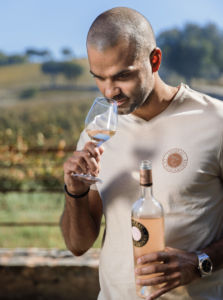
Tony Parker at Château La Mascaronne COURTESY OF CHÂTEAU LA MASCARONNE
So [I thought] if Tom Bove hit that property perfectly with Miraval, for sure [it can happen] with La Mascaronne, it’s just a matter of time before we can do something amazing.
What’s next for you as far as the wine world goes?
Our premium rosé just came out from La Mascaronne. Only 3,000 bottles.
We’re working on more premium one’s now. I think that’s where things are going with rose’s. All these big companies and all the knowledge that they get from the red wines is coming into the Rosé world, where the Rosé is going to get better and better.
For more information on Tony Parker and La Mascaronne:
Post Views: 220





